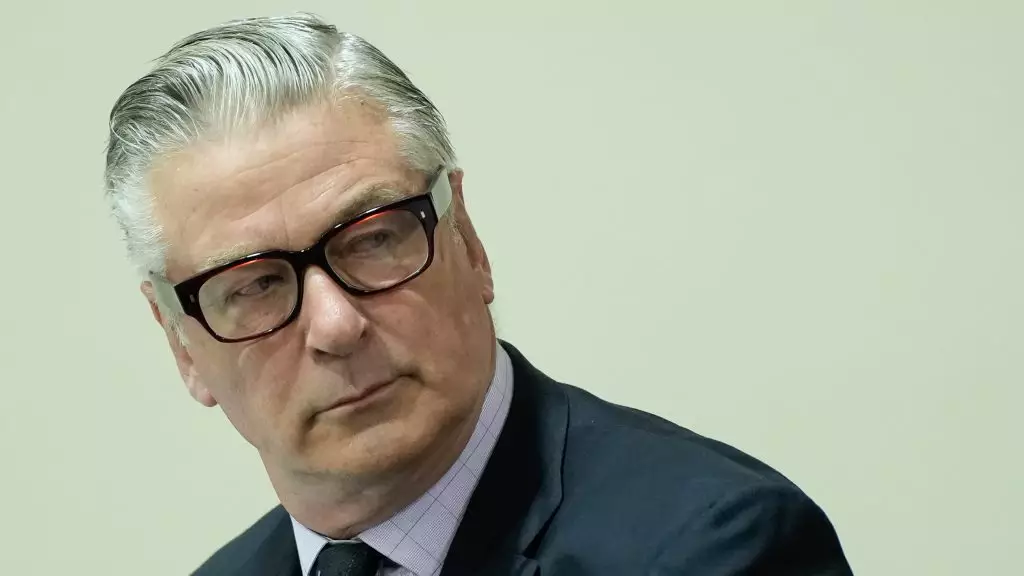The cinematic world has always been a stage for drama, but one incident cast an unsettling shadow over the industry: the on-set shooting tragedy during the filming of “Rust.” In 2021, cinematographer Halyna Hutchins lost her life when a prop gun, fired by actor Alec Baldwin, discharged a live round. Although Baldwin faced involuntary manslaughter charges that were ultimately dismissed, he remains driven to share his side of the story. As he prepares for what he describes as “another phase” in revealing the intricacies of the incident, the question looms: what truly transpired on that fateful day?
In a recent appearance on David Duchovny’s “Fail Better” podcast, Baldwin expressed a profound desire to unveil the truth behind the shooting. He emphasized that his narrative has yet to be fully told, stating, “The truth of what happened has never been told, never.” Baldwin insists that the media has played a crucial role in shaping public perception by excluding information potentially beneficial to his case, while accentuating narratives that bolster public outrage. This skewed representation sparked Baldwin’s determination to clarify his position and potentially restore his reputation.
Baldwin’s frustration highlights a broader issue within the media landscape: the challenge of balanced reporting when stories involve high-profile figures. The actor’s claim that the press suppressed beneficial narratives and amplified injurious ones raises ethical concerns about journalistic responsibility in high-stakes situations. It is critical to reflect on whether the media can ensure fair coverage or if sensationalism inevitably prevails, particularly in cases that strike a chord with the public’s emotions.
Having navigated a tumultuous few years marked by intense scrutiny, Baldwin articulated his perspective on public sentiment towards him. He noted the mob-like mentality toward celebrities embroiled in controversy, stating that “when people hate you on that level, they want three things.” His observations reflect a darker aspect of celebrity culture, where an individual’s downfall elicits not just schadenfreude but also a collective desire for punishment and cancellation. Baldwin’s claims about the motivations behind his detractors serve as a cautionary reminder of the potential social consequences faced by those in the public eye.
Moreover, Baldwin’s mention of “dining out” on his misfortunes highlights the complex interplay between public personas and personal crises. In an age where information spreads rapidly, narratives can evolve, often to the detriment of those experiencing the fallout. Baldwin suggests that the legal proceedings unfolding around him were insufficient to capture the complete truth about that day on the “Rust” set, amplifying the need for a more substantial legal discourse or investigation that might reveal insights previously hidden from public view.
Despite the tumult, Baldwin appears to be cautiously optimistic about his professional future. He hinted at a return to favorable circumstances in both his career and personal life, stating, “things are coming back my way.” This sentiment stems not only from the legal ruling that dismissed the charges but also from a desire to take control of his narrative moving forward. It sends a powerful message: while the past may haunt him, he intends to shape his future on better terms.
Baldwin’s announcement of an upcoming “another phase” suggests an impending commitment to the truth. He plans to pursue revelations through legal avenues in the coming months and aims to galvanize support for a detailed account of events that many have yet to comprehend fully. For Baldwin, this endeavor is not merely about exoneration; it also involves addressing the complexities surrounding the incident that claimed Hutchins’ life.
The saga of Alec Baldwin raises critical questions about the prudence of public figures sharing their truth in the wake of tragedy. As Baldwin sets out to unearth the narrative that has remained dormant, it serves as an illustration of how celebrity culture interlaces with the quest for accountability and understanding. In an era where the lines between public perception and personal truth often blur, Baldwin’s journey reminds us of the necessity for transparency in not just the entertainment industry, but society as a whole. The story may still evolve, but ultimately, it mirrors the age-old quest for redemption and clarity in the face of overwhelming adversity.

Leave a Reply